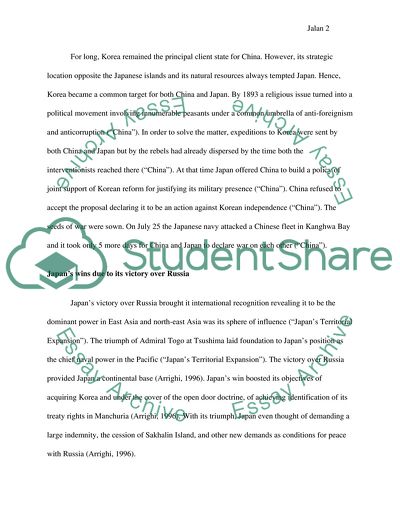Cite this document
(“Acquisition of Empire. Japans wins due to its victory over China Essay”, n.d.)
Acquisition of Empire. Japans wins due to its victory over China Essay. Retrieved from https://studentshare.org/history/1543577-acquisition-of-empire-japans-wins-due-to-its-victory-over-china
Acquisition of Empire. Japans wins due to its victory over China Essay. Retrieved from https://studentshare.org/history/1543577-acquisition-of-empire-japans-wins-due-to-its-victory-over-china
(Acquisition of Empire. Japans Wins Due to Its Victory over China Essay)
Acquisition of Empire. Japans Wins Due to Its Victory over China Essay. https://studentshare.org/history/1543577-acquisition-of-empire-japans-wins-due-to-its-victory-over-china.
Acquisition of Empire. Japans Wins Due to Its Victory over China Essay. https://studentshare.org/history/1543577-acquisition-of-empire-japans-wins-due-to-its-victory-over-china.
“Acquisition of Empire. Japans Wins Due to Its Victory over China Essay”, n.d. https://studentshare.org/history/1543577-acquisition-of-empire-japans-wins-due-to-its-victory-over-china.


